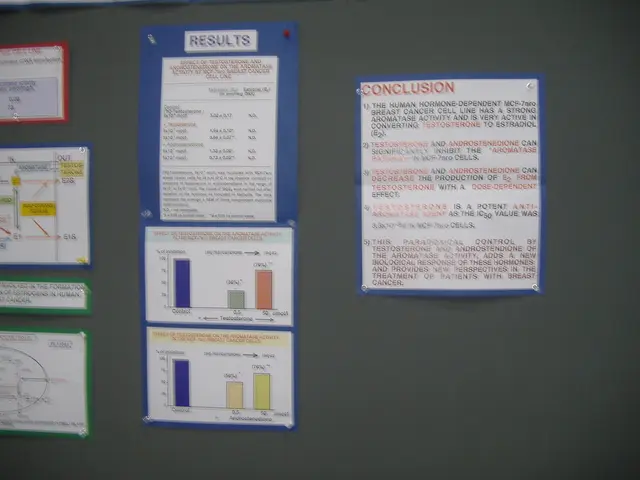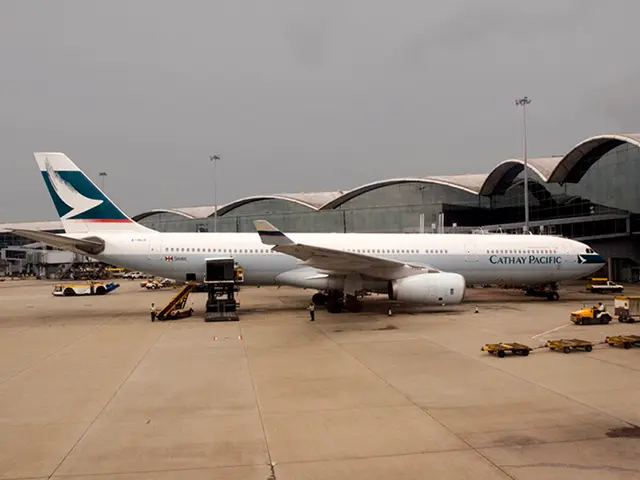A Glimpse into the Cross-Border Spat: Merz's Migration Policy and Tusk's Critique
Migration path of Merz does not include Tusk.
In a surprising turn of events, the new German Chancellor Friedrich Merz's first diplomatic tour has hit a bump. During his inaugural visit to Warsaw, Polish Prime Minister Donald Tusk didn'tugarwrap warm greetings. The bone of contention? The migration policy that Merz's new black-red coalition is pushing for.
Tusk, in a sharp rebuke, said, "Germany will let into its territory whoever it wants. Poland will only let into its territory those it accepts." Tusk's words echo the rising tension over the "Dublin center" established near the Polish border in Eisenhuettenstadt, which is designed to facilitate the return of asylum seekers to other EU countries. Tusk also criticized Merz's plan to reinforce border controls, stating, "If someone introduces controls at the Polish border, Poland will also introduce such controls. And that simply doesn't make sense in the long run."
Signals Sent Across the Globe: Merz's Resolve
Merz, undeterred, promised Poland's support in protecting the EU's external border. He emphasized the need for stricter border controls, stating, "We consider it a duty to better protect these European external borders, also with German support and assistance, than we have been able to do in the past." Merz also called for a joint European solution to limit illegal migration.
In defense of his actions, Merz promised adherence to the Schengen rules, which ensure open borders within the EU. However, he also announced plans to step up identity checks and refusals of illegal crossings at the borders. Reports suggest that Germany has already deployed over 11,000 federal police officers for border protection and aims to increase this number. Since early 2024, Germany has returned more than 11,000 migrants to Poland under existing agreements.
A Test of Cooperation: Securing EU's External Borders
The rising tension calls for a reexamination of the EU's migration policies and border controls. While Germany is moving toward stricter enforcement and expanded border checks at the external borders, including with Poland, Poland seeks to avoid measures that disrupt internal EU mobility and trade.
Germany's approach reflects a priority on national and EU external border security by physically reinforcing borders and denying entry to undocumented migrants, aligning with a broader EU legal principle that asylum claims are to be processed in the first country of entry. Poland's position, conversely, signals a concern that Germany's unilateral tightening could hamper the Schengen area's free movement and create practical difficulties in cross-border cooperation.
This tension underscores the complexities and challenges facing the EU as it grapples with the ever-evolving landscape of migration and border security. Reporting by ntv.de, jog/dpa.
- Poland
- Germany
- Friedrich Merz
- Migration Policy
- Border Controls
- Asylum Seekers
- Refugees
- EU
- Schengen Area
- Cross-Border Cooperation
- The Polish Prime Minister, Donald Tusk, expressed dissent towards Germany's migration policy, proposed by new Chancellor Friedrich Merz, during Merz's inaugural visit to Warsaw.
- Tusk criticized Merz's plans for reinforced border controls, asserting that if Poland introduces similar measures, it would lead to impractical situations in the long run.
- Despite Tusk's criticism, Merz remained resolved, promising support for Poland in protecting the EU's external borders and reiterating the need for stricter border controls.
- Germany's approach to migration policy includes plans for increased identity checks and refusals of illegal crossings at the borders, echoing a broader EU legal principle that asylum claims should be processed in the first country of entry.
- The tension between Germany and Poland over migration policy and border controls highlights the complexities and challenges the EU faces as it navigates the evolving landscape of migration and border security.








